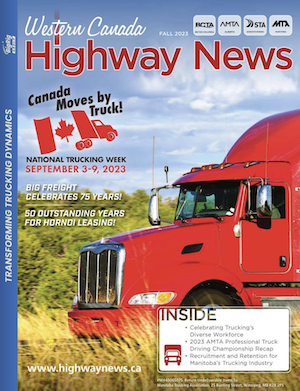The federal government has announced plans to extend the Canada Emergency Wage Subsidy (CEWS) to December 19, and has expanded the eligibility criteria to include all businesses that have experienced a revenue decrease.
The Canadian Trucking Alliance (CTA) has welcomed the extension and changes, which include restricting the benefit to businesses that have experienced at least a 30% decrease in revenue.
“CTA is strongly supportive of today’s announcement.
The CEWS is an important program for many carriers and we are pleased to see it extended until December,” said Jonathan Blackham, CTA Director of Policy and Public Affairs. “We are also very happy to see the government move away from the 30% threshold and make the CEWS scalable. Many carriers in need of assistance have been falling just below the current qualification threshold and this is why we have long supported this kind of approach.”
Carriers with revenue declines of less than 30% qualify effective July 5. The CTA said it has been pushing the feds to make CEWS scalable, to include more businesses that need help. Its surveys found nearly half of trucking companies did not initially qualify for CEWS based on the 30% threshold, some just narrowly missing out on the help.
Trucking HR Canada released the second report in a series focused on assessing labour market impacts of COVID-19. This report includes updated insights of how COVID-19 is affecting trucking and logistics employment, and what can be expected for employers in the industry in the next three years. This second stage of the report presents a labour market forecast and shares results based on the ramifications of COVID-19. In the forecast, we learn that:
• Over the first two quarters of 2020, employment in the trucking and logistics sector is expected to contract by 10.4%, or 72,000 jobs, due to COVID-19. We expect a 10.9% contraction among truck drivers and 10.0% decline among non-truck driver occupations.
• Given anticipated retirements and other labour outflows from the truck driver occupation, there is a strong indication that, by 2023, labour demand is unlikely to be fully met, which would mean a return to driver shortages
• We estimate that COVID-19 and its economy-wide impacts will result in declines in truck driver employment that cost the truck transportation industry approximately $3.2 billion in sales in 2020.
On July 9, 2020, Trucking HR Canada held a briefing with the Government of Canada to share this important update with officials and ultimately aid in good decision making for the industry.


 1-866-985-9791
1-866-985-9791


